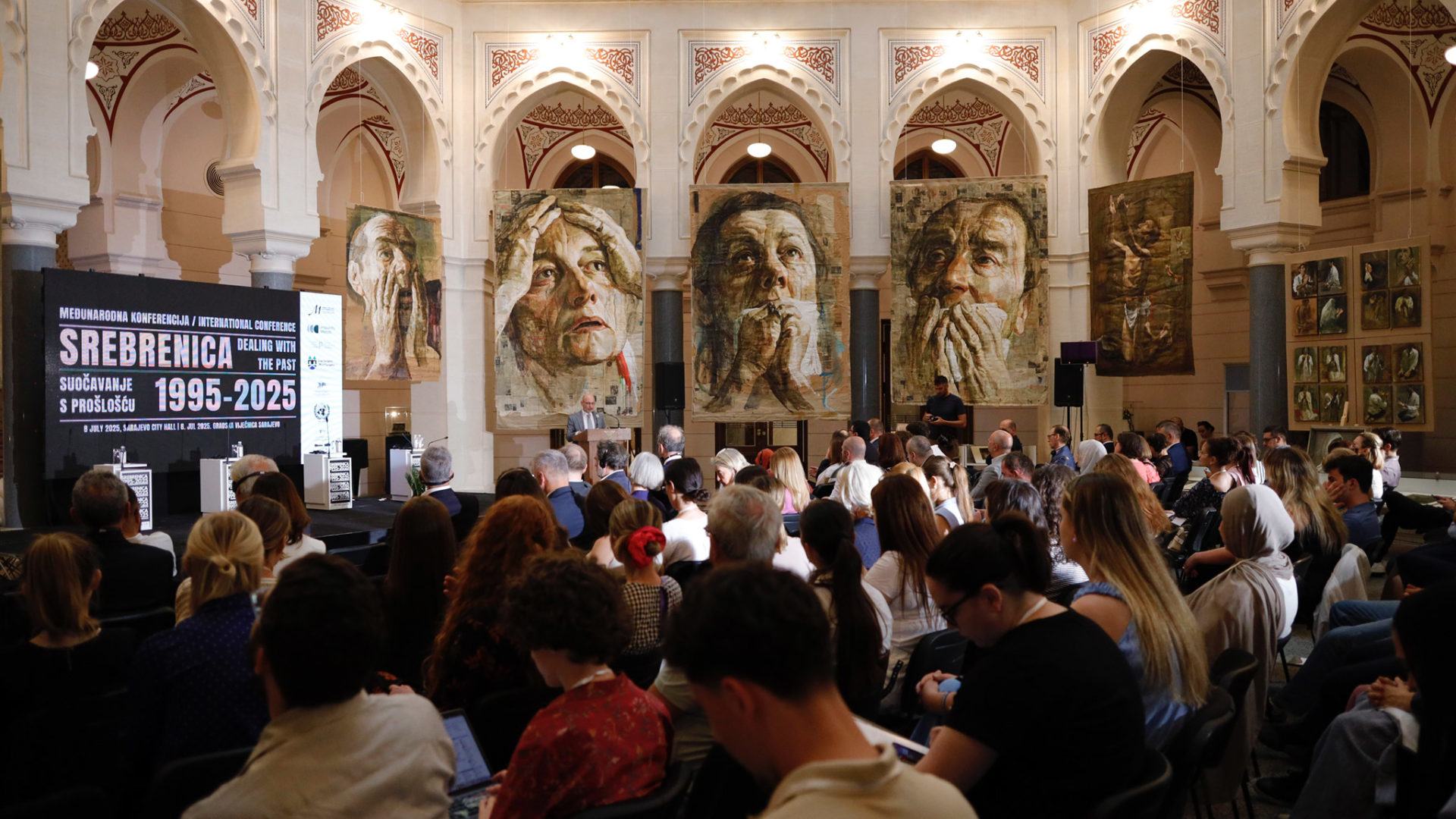
Thirty years after the Srebrenica genocide, Bosnia and Herzegovina and the wider region have yet to fully reckon with the past.
At the international conference “Srebrenica 1995–2025: Dealing with the Past,” held on July 8 at the Sarajevo City Hall, participants emphasized the importance of integrating judicially established facts into education, public awareness, and remembrance. They also stressed that prosecuting those responsible for genocide and war crimes—as well as those who deny these facts—is essential for confronting the past and ensuring lasting peace.
“Srebrenica 1995-2025: Dealing with the Past” was organized by the Post-Conflict Research Center, the City of Sarajevo, Sarajevo’s International Criminal Tribunal for the former Yugoslavia (ICTY) Center, the Movement of the Mothers of the Srebrenica and Žepa Enclaves, the International Residual Mechanism for Criminal Tribunals (IRMCT), the Western Balkans Coalition for Genocide and Mass Atrocity Crimes Prevention, and the Dutch organization Impunity Watch.
“Truly scenes from hell took place in Srebrenica, written on the darkest pages of human history,” said PCRC Founder and President Velma Šarić, quoting the statement of an ICTY judge in the case against Radovan Karadžić. She noted that those who wrote these dark pages of history in July 1995 are now serving life sentences.
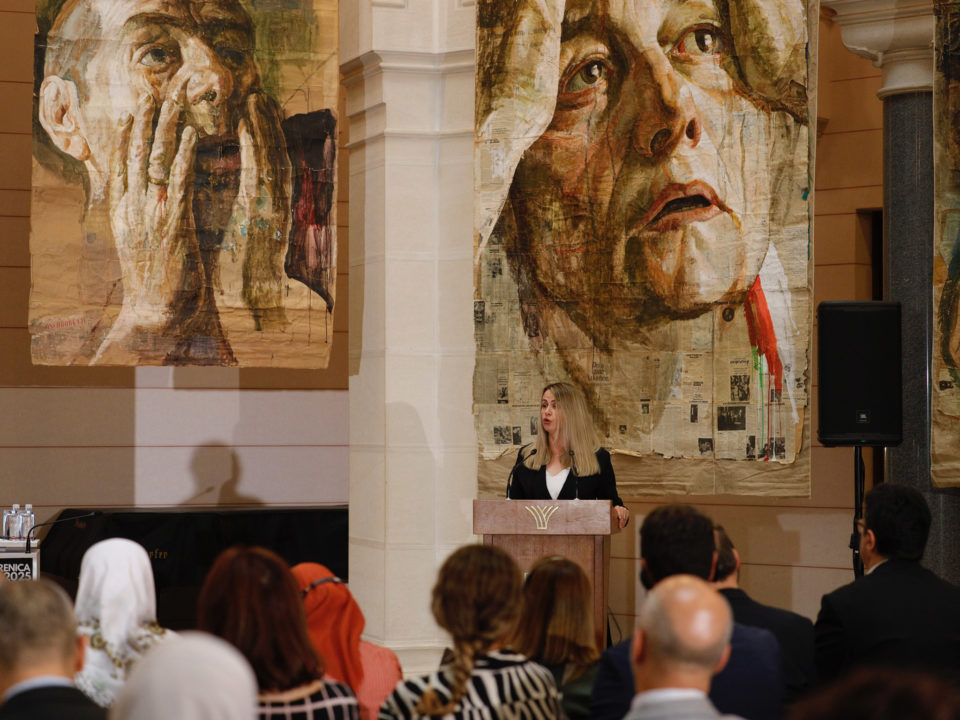
Šarić emphasized that to date, 56 people have been sentenced to a total of 810 years in prison and five life sentences before international, domestic, and regional courts for genocide and war crimes in Srebrenica.
The Necessity of Accepting the Truth
While justice is only one aspect, IRMCT President Graciela Gatti Santana stressed that in order to maintain peace and work towards reconciliation, it is crucial that the affected communities learn and accept the truth of past events. This includes, she stated, being willing to grapple with the complexities of the conflicts, acknowledging the human stories behind the statistics, and understanding the ways that justice and accountability contribute to preventing the repetition of such atrocities.
“In discharging their mandates, the ICTY and the Mechanism have created a rich legacy, not only in terms of advancing the law, but also by establishing the facts surrounding the conflicts in the 1990s. Today, the Mechanism remains committed to making this legacy accessible to anyone interested in the history of the conflicts in the former Yugoslavia,” said Judge Gatti Santana.
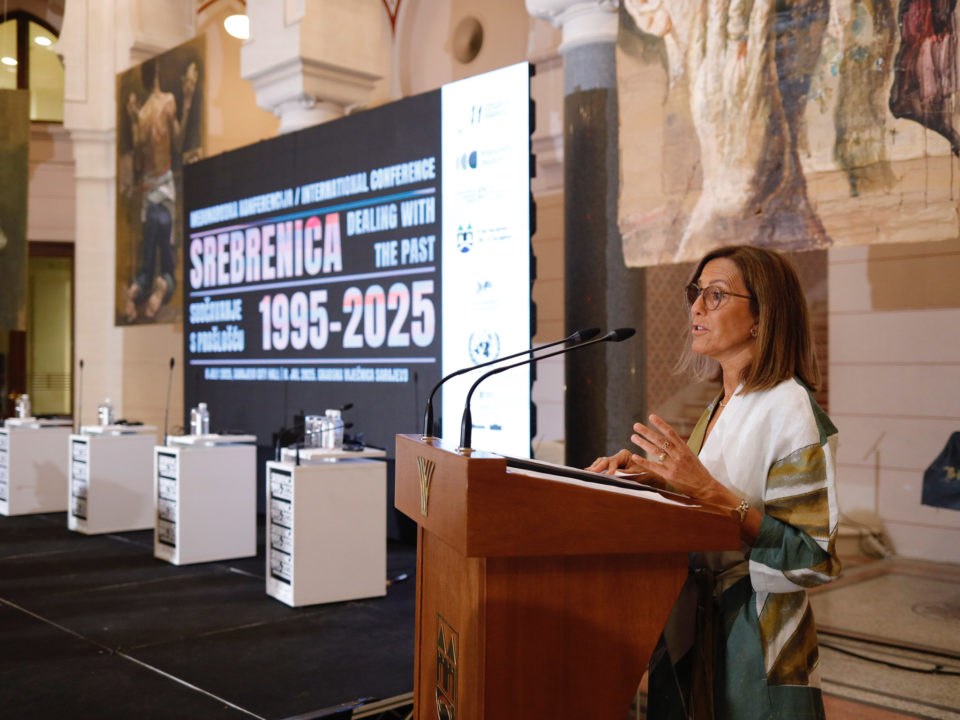
According to Šarić, the three decades of post-conflict transition and peace building have been more than just a challenging process, revealing that the Western Balkan region has failed to sufficiently distance itself from the politics of nationalism and genocide denial.
“The rehabilitation and celebration of convicted war criminals is still a major obstacle in the processes of dealing with the past and reconciliation. Young people in Bosnia and Herzegovina and the region are growing up with transgenerational trauma and biased narratives about the past war, which further deepens the divisions between them,” explained Šarić.
Harnessing the Power of Education
Every post-conflict society struggles to move forward if there are different versions of events and if the truth —even that which is judicially established—is actively undermined, warned Judge Gatti Santana.
“I strongly believe that education is critical to counter such false narratives. Furthermore, it is an essential pillar for a strong foundation of societies that are resilient, inclusive, and compassionate. By harnessing the power of education, we can ensure that the lessons from the conflicts in the former Yugoslavia, including what happened in Srebrenica three decades ago, are not forgotten, and encourage the next generations to create a more just future,” she said.
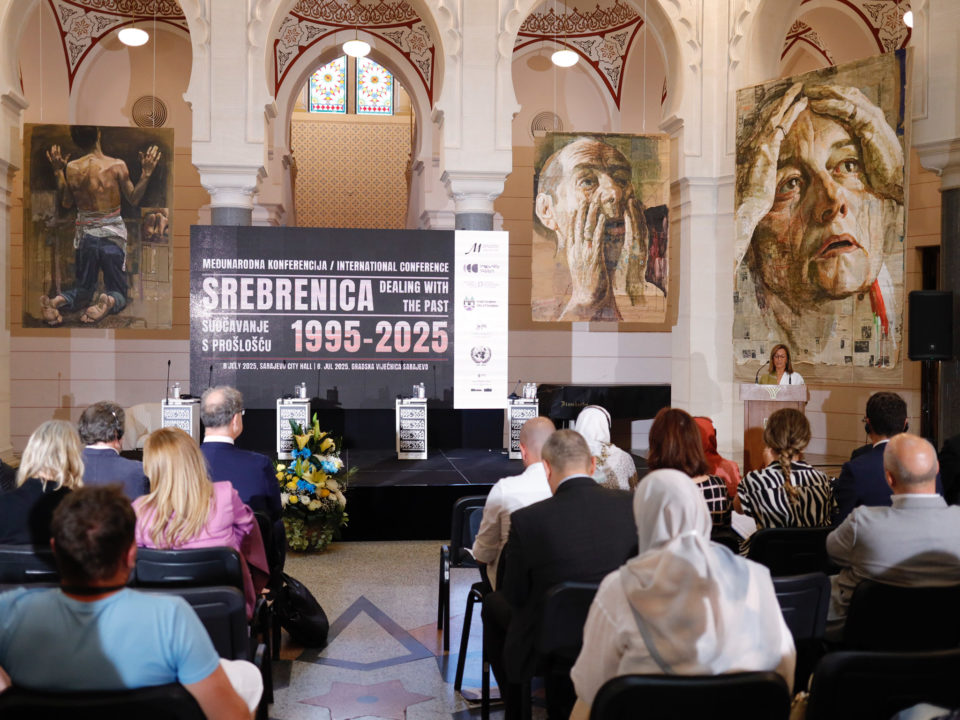
She recalled that the UN General Assembly recognized the important connection between judicially determined facts, collective memory, and education in its recent resolution declaring July 11 the International Day of Remembrance for the Srebrenica Genocide. She added that this resolution calls on states, international organizations, and civil society to use education and memorialization to prevent the denial and repetition of genocide.
Sarajevo Mayor Predrag Puharić lauded the Srebrenica Remembrance Day Resolution as an act of civilizational significance. However, he noted that it does not resolve the issue but rather obliges us to continue to take action.
“We can attest that the truth about Srebrenica is still being disputed, that the crimes are being denied, and the criminals are, unfortunately, being glorified. That is why we are talking about justice today—what it means to prosecute crimes, but also what it means to educate new generations to recognize violence, manipulation, and hatred,” said Puharić.
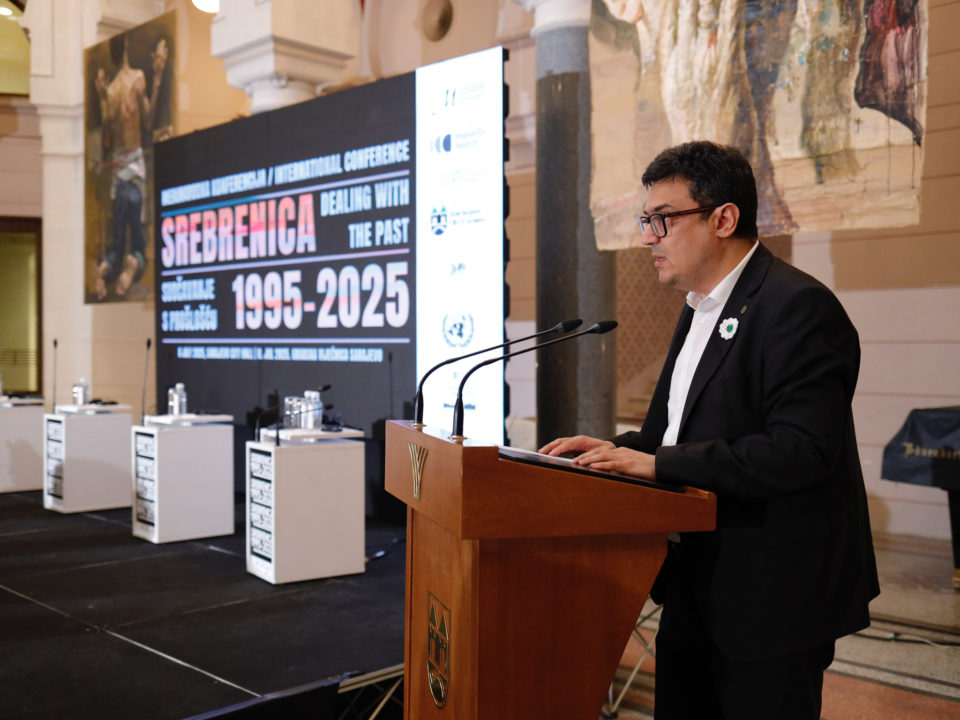
He explained that dealing with the past should remain the foundation for building the future.
“Sarajevo remembers Srebrenica. Sarajevo does not want to be just a city of remembrance of suffering, but a city that uses memory to build policies of peace, truth, education, respect, and solidarity,” concluded Puharić.
James Smith, the founder and deputy chairman of Aegis Trust—the organization that established the Kigali Genocide Memorial in Rwanda—addressed the conference, urging attendants never to give up on the path to justice: “There would be no chance of sustainable peace without you.”
“The world is becoming more insular, divided, and dangerous. You’ve stood strong for 30 years. When this commemoration is over, take time to pause and renew yourselves and be ready for the next 30 years, and we will be with you. We need you; our children and grandchildren need you. In this commemorative period, maybe, just maybe, we can learn to love others just as much as we love ourselves,” Smith said.
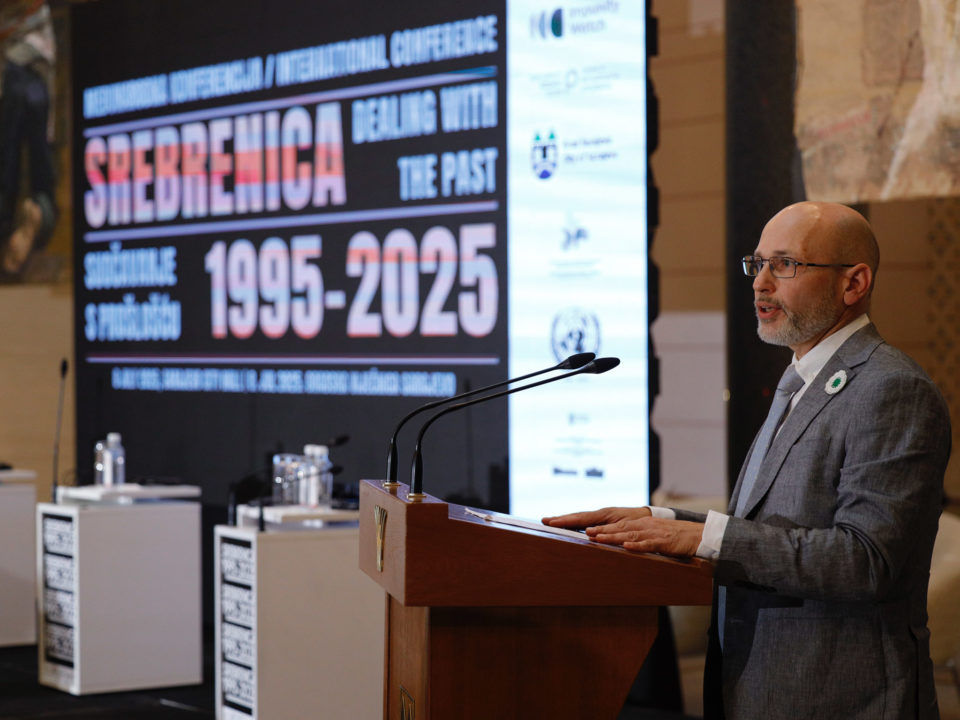
Damon M. Wilson, president and CEO of the National Endowment for Democracy (NED), an American organization that actively supports civil society in Bosnia and Herzegovina, addressed those present with a video message. He emphasized that 30 years after the terrible violence, it is crucial to face the past and “ensure that sites of remembrance are recognized, that victims’ stories are heard, and that the events of the 1990s are not forgotten so that they are never repeated.”
He highlighted the Srebrenica Memorial Center as an example of what is crucial for building democracy: “the power of local action that engages citizens and leaders like you.”
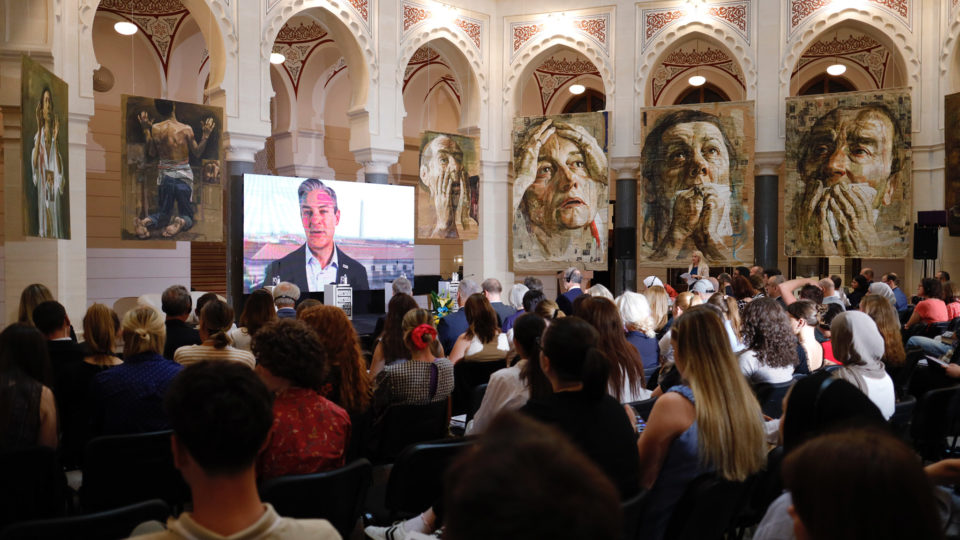
“We have seen civic groups initiating legislation to bring recognition to survivors, holding perpetrators of war crimes accountable, finding innovative ways to overcome the past, bringing communities closer together, creating bodies of evidence needed for court rulings and policymaking, and ensuring that victims’ stories are brought to light,” said Wilson, who reiterated NED’s commitment to building peace in Bosnia and Herzegovina and the region.
_______________
The international conference “Srebrenica 1995–2025: Dealing with the Past” was held with the support of the National Endowment for Democracy (NED), the Rockefeller Brothers Fund, the Sigrid Rausing Trust, the United Nations in BiH, BH Telecom, the Public Enterprise Vijećnica, the organization Pro Peace, the regional project “EU Support to Confidence Building in the Western Balkans,” and the OSCE Mission to Bosnia and Herzegovina.






